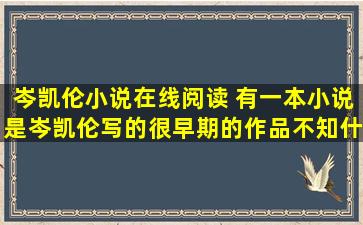drawimage drawimage方法
Graphics.drawImage究竟是怎么个意思
public abstract boolean drawImage(Image img,
int x,
int y,
int width,
int height,
ImageObserver observer)绘制指定图像中已缩放到适合指定矩形内部的图像。
图像绘制在此图形上下文坐标空间的指定矩形内部,如果需要,则进行缩放。透明像素不影响该处已存在的像素。
此方法在任何情况下都立刻返回,甚至在整个图像没有针对当前输出设备完成缩放、抖动或转换的情况下也是如此。如果当前输出表示形式尚未完成,则 drawImage返回 false。随着更多的图像可用,加载图像的进程将通过调用图像观察者的 imageUpdate方法来通知它。
缩放的图像不一定立刻可用,因为已经针对此输出设备构造了非缩放的图像。每种大小的图像可以被分别缓存,并由各自图像生产序列中的原始数据生成。
参数:
img-要绘制的指定图像。如果 img为 null,则此方法不执行任何*作。
x- x坐标。
y- y坐标。
width-矩形的宽度。
height-矩形的高度。
observer-转换了更多图像时要通知的对象。
j*a中的paint方法中的drawimage方法怎么用
drawImage方法是用来将图片绘制到目标上
drawImage
public abstract boolean drawImage(Image img,
int x,
int y,
int width,
int height,
Color bgcolor,
ImageObserver observer)绘制指定图像中已缩放到适合指定矩形内部的图像。
图像绘制在此图形上下文坐标空间的指定矩形内部,如果需要,则进行缩放。以指定的背景色绘制透明像素。此*作等同于用给定颜色填充指定图像宽度和高度的矩形,然后在其上绘制图像,但此*作效率更高。
此方法在任何情况下都立刻返回,甚至在整个图像没有针对当前输出设备完成缩放、抖动或转换的情况下也是如此。如果当前的输出表示形式尚未完成,则 drawImage返回 false。随着更多的图像可用,加载图像的进程将通知指定的图像观察者。
缩放的图像不一定立刻是可用的,因为已经为此输出设备构造了非缩放的图像。每种大小的图像可以被分别缓存,并由各自图像生产序列中的原始数据生成。
参数:
img-要绘制的指定图像。如果 img为 null,则此方法不执行任何*作。
x- x坐标。
y- y坐标。
width-矩形的宽度。
height-矩形的高度。
bgcolor-在图像非透明部分下绘制的背景色。
observer-当转换了更多图像时要通知的对象。
一个简单的例子(drawImage方法有很多变体这里用的是最简单的一个)
import j*a.awt.BasicStroke;
import j*a.awt.BorderLayout;
import j*a.awt.Color;
import j*a.awt.Font;
import j*a.awt.Graphics;
import j*a.awt.Graphics2D;
import j*a.awt.image.BufferedImage;
import j*ax.swing.JFrame;
import j*ax.swing.JLabel;
import j*ax.swing.SwingUtilities;
public class GraphiscTest extends JLabel{
private static final long serialVersionUID=-1985867978449397006L;
public GraphiscTest(){
super();
}
@Override
public void paintComponent(Graphics g){
super.paintComponent(g);
BufferedImage image= new BufferedImage(150, 150,
BufferedImage.TYPE_3BYTE_BGR);
Graphics2D g2d= image.createGraphics();
g2d.setBackground(Color.GRAY);
g2d.clearRect(0, 0, getWidth(), getHeight());
g2d.drawString(“Default Font”, 10, 20);
g2d.drawLine(10, 22, 80, 22);
g2d.setFont(g.getFont().deriveFont(Font.BOLD| Font.ITALIC, 24f));
g2d.setColor(Color.WHITE);
g2d.setStroke(new BasicStroke(10f, BasicStroke.CAP_ROUND,
BasicStroke.JOIN_MITER));
g2d.drawString(“New Font”, 10, 50);
g2d.drawLine(10, 57, 120, 57);
g2d.dispose();
g.drawImage(image, 0, 0, null);
}
public static void main(String args[]){
SwingUtilities.invokeLater(new Runnable(){
@Override
public void run(){
JFrame frame= new JFrame();
frame.setLayout(new BorderLayout());
frame.add(new GraphiscTest(), BorderLayout.CENTER);
frame.setSize(320, 240);
frame.setDefaultCloseOperation(JFrame.EXIT_ON_CLOSE);
frame.setVisible(true);
}
});
}
}
求,C#Graphics.DrawImage用法,
代码:
public void DrawImage(System.Drawing.Image image,System.
Drawing.Rectangle destRect,int srcX,int srcY,int srcWidth,int srcHeight,System.Drawing.GraphicsUnit srcUnit,System.
Drawing.Imaging.ImageAttributes imageAttrs,System.Drawing.
Graphics.DrawImageAbort callback,IntPtr callbackData);
参数
image
Image
要绘制的Image。
destRect
Rectangle
Rectangle结构,它指定所绘制图像的位置和大小。将图像进行缩放以适合该矩形。
srcX
Int32
要绘制的源图像部分的左上角的x坐标。
srcY
Int32
要绘制的源图像部分的左上角的y坐标。
srcWidth
Int32
要绘制的源图像部分的宽度。
srcHeight
Int32
要绘制的源图像部分的高度。
srcUnit
GraphicsUnit
GraphicsUnit枚举的成员,它指定用于确定源矩形的度量单位。
imageAttrs
ImageAttributes
ImageAttributes,它指定image对象的重新着色和伽玛信息。
callback
Graphics.DrawImageAbort
Graphics.DrawImageAbort委托,它指定在绘制图像期间要调用的方法。此方法被频繁调用以检查是否根据应用程序确定的条件停止
DrawImage(Image,Rectangle,Int32,Int32,Int32,Int32,GraphicsUnit,ImageAttributes,
Graphics+DrawImageAbort,IntPtr)方法的执行。
callbackData
IntPtr
一个值,它为Graphics.DrawImageAbort委托指定在检查是否停止执行DrawImage方法时要使用的附加数据。
例外
ArgumentNullException
image为null。
扩展资料:
示例
下面的代码示例旨在与Windows窗体一起使用,并且它需要PaintEventArgse,它是Paint*处理程序的参数。
代码首先为Graphics.DrawImageAbort委托定义回调方法;定义是简化的,仅测试DrawImage方法是否使用null callBackData参数调用该定义。
示例的主体执行以下*作:
创建Graphics.DrawImageAbort回调方法的实例。
在示例的文件夹中创建SampImag JPEG文件中的图像。
创建定义要在其中绘制图像的目标矩形的点。
创建源矩形以选择要绘制的图像部分。
将图形绘图单位设置为像素。
将原始图像绘制到屏幕上。
创建一个要在其中绘制调整后的图像的附加目标矩形。
创建并设置调整后的图像的属性,使其具有比平时更大的伽玛值。
在屏幕上绘制调整后的图像。
对于原始的unadjusted目标矩形,位置在屏幕上定位图像,源矩形的大小和目标矩形的大小和形状决定了所绘制图像的缩放。
由于此示例使用传递了一个callBackData参数的重载,因此Graphics.DrawImageAbort回调返回false,这将导致DrawImage方法继续,此示例将调整后的图像绘制到屏幕上。
代码:
// Define DrawImageAbort callback method.
private bool DrawImageCallback6(IntPtr callBackData)
{
// Test for call that passes callBackData parameter.
if(callBackData==IntPtr.Zero)
{
// If no callBackData passed, abort DrawImage method.
return true;
}
else
{
// If callBackData passed, continue DrawImage method.
return false;
}
}
private void DrawImageRect4IntAtrribAbortData(PaintEventArgs e)
{
// Create callback method.
Graphics.DrawImageAbort imageCallback
= new Graphics.DrawImageAbort(DrawImageCallback6);
IntPtr imageCallbackData= new IntPtr(1);
// Create image.
Image newImage= Image.FromFile(“SampImag.jpg”);
// Create rectangle for displaying original image.
Rectangle destRect1= new Rectangle(100, 25, 450, 150);
// Create coordinates of rectangle for source image.
int x= 50;
int y= 50;
int width= 150;
int height= 150;
GraphicsUnit units= GraphicsUnit.Pixel;
// Draw original image to screen.
e.Graphics.DrawImage(newImage, destRect1, x, y, width, height, units);
// Create rectangle for adjusted image.
Rectangle destRect2= new Rectangle(100, 175, 450, 150);
// Create image attributes and set large gamma.
ImageAttributes imageAttr= new ImageAttributes();
imageAttr.SetGamma(4.0F);
try
{
checked
{
// Draw adjusted image to screen.
e.Graphics.DrawImage(
newImage,
destRect2,
x, y,
width, height,
units,
imageAttr,
imageCallback,
imageCallbackData);
}
}
catch(Exception ex)
{
e.Graphics.DrawString(
ex.ToString(),
new Font(“Arial”, 8),
Brushes.Black,
new PointF(0, 0));
}
}
本文链接:http://www.hnxdcx.com/html/87966252.html
版权声明:本文内容由互联网用户自发贡献,该文观点仅代表作者本人。本站仅提供信息存储空间服务,不拥有所有权,不承担相关法律责任。如发现本站有涉嫌抄袭侵权/违法违规的内容, 请发送邮件举报,一经查实,本站将立刻删除。



